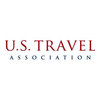Bipartisan Legislation Introduced to Jump-Start U.S. Economy, Attract Millions More International Visitors
Travel Promotion Act Estimated to Create $4 Billion in Economic Stimulus; No Money Required from American Taxpayers
WASHINGTON, DC | The U.S. Travel Association today praised Senators Byron Dorgan (D-ND) and John Ensign (R-NV) for introducing the “Travel Promotion Act of 2009” – landmark legislation to stimulate U.S. economic growth, create thousands of new American jobs and generate hundreds of millions of dollars in new tax revenue for communities across the country. The legislation is considered especially necessary given that the U.S. dollar is strengthening, the global economy is slowing and America continues to welcome fewer overseas visitors than prior to September 11, 2001.
“This is the jobs and growth package America needs,” said Roger Dow, president and CEO of the U.S. Travel Association. “Travel promotion is common-sense legislation that places America on par with its competitors around the world without taking a dollar from U.S. taxpayers.”
The “Travel Promotion Act” establishes a public-private partnership to promote the United States as a premier international travel destination and communicate U.S. security and entry policies. The legislation specifies that travel promotion would be paid for by private sector contributions and a $10 fee on foreign travelers from countries that do not pay $131 for a visa to enter the United States. Similar legislation passed the U.S. House of Representatives in 2008, but did not receive a vote before the Senate adjourned.
Overseas visitors spend an average of $4,500 per person, per trip in the United States. Oxford Economics estimates that a well executed promotion program, as outlined in the Travel Promotion Act, would attract 1.6 million new international visitors annually, create $4 billion in new spending and drive $321 million in new federal tax revenue. An analysis by the U.S. Travel Association reveals that this program would create nearly 40,000 new American jobs. Nearly every developed nation in the world spends millions of dollars to attract visitors and strengthen their economy.
Facts on declining overseas travel to the United States:
- International travel to the U.S. declined by 10 percent in the first quarter of 2009 according to the U.S. Department of Commerce.
- Despite a weak dollar that made the U.S. a travel bargain and 48 million more people around the world traveling “long haul,” the United States welcomed 633,000 fewer overseas visitors in 2008 than in 2000 – remaining below pre-9/11 levels of overseas visitors for the seventh consecutive year.
- Had the U.S. kept pace over the last eight years with the average growth in global overseas travel, we would have received an additional 58 million visitors, $182 billion in new visitor spending and $27 billion in new tax receipts. In 2008 alone, overseas travel would have created 245,000 jobs.
- A U.S. Travel Association analysis of government data reveals that the travel industry will lose nearly 450,000 jobs between 2008 and 2009.
Previously the Travel Industry Association, the U.S. Travel Association is the national, non-profit organization representing all components of the $740 billion travel industry. U.S. Travel’s mission is to promote and facilitate increased travel to and within the United States. U.S. Travel is proud to be a partner in travel with American Express. For more information, visit .
Kristy Chandler
202.408.2172
U.S. Travel Association
